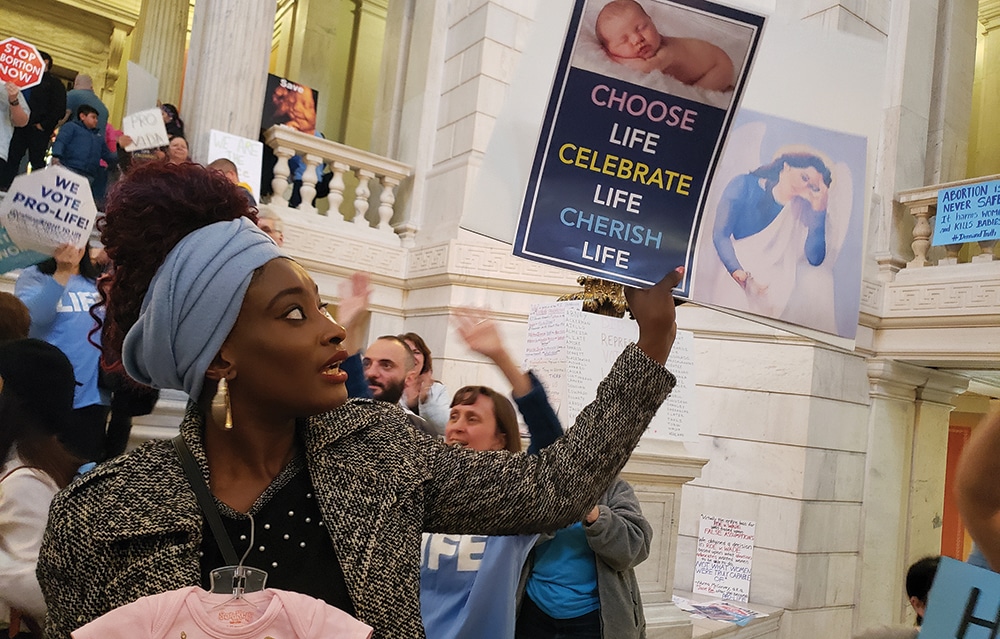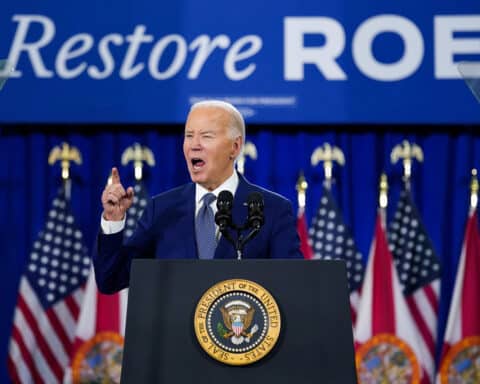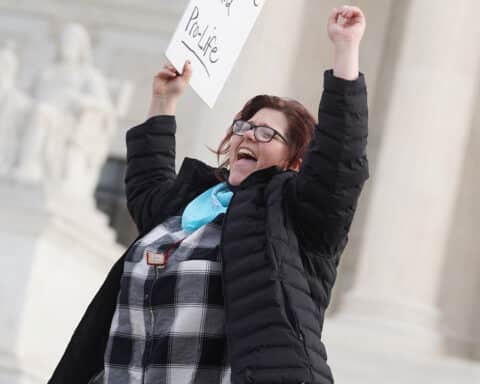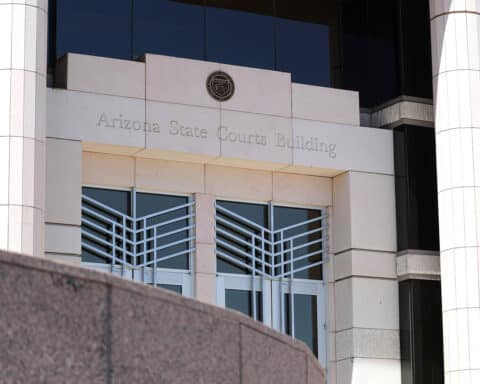Seeing their best chance in decades to overturn Roe v. Wade, state legislators across the country are passing new laws to restrict abortion that they and their pro-life allies expect will be struck down in the federal courts.
The strategy behind passing laws such as the so-called “heartbeat bills” — which prohibit abortions when a fetal heartbeat can be detected, usually around the sixth week of pregnancy — rests on the hope that the U.S. Supreme Court will agree to hear arguments in those cases and reexamine its abortion precedents.
“We’re just trying to give the court the best chance it has to get a good case in front of it, to look at the incredibly poorly decided decision in Roe v. Wade,” said Jamieson Gordon, director of communications and marketing for Ohio Right to Life.
Gordon told Our Sunday Visitor that Ohio Right to Life — after years of not endorsing a heartbeat bill in favor of other legislative priorities — supported the legislation this year because of the addition of two conservative justices — Neil Gorsuch and Brett Kavanaugh — to the Supreme Court since Donald Trump became president in 2017.
“We previously saw the (Supreme Court) as not being very favorable,” Gordon said. “We thought of the heartbeat bill as being a good idea at the wrong time.”
On April 11, Ohio Gov. Mike DeWine signed the Human Rights and Heartbeat Protection Act into law. In doing so, Ohio joined Georgia, Kentucky, Missouri and Mississippi as states this year that have passed laws to prohibit abortions when doctors can detect a fetal heartbeat. Several other states are considering similar legislation.
Changing the narrative
“We were in support of the heartbeat bill because, at its basis, we want the legislature to support life at its earliest possible moment,” Jamie Morris, legal counsel for the Missouri Catholic Conference, told OSV.
Morris said the Missouri Catholic Conference encouraged state legislators to be mindful of the law’s ability to withstand a constitutional challenge when crafting the bill. With that in mind, the law has severability clauses that move the abortion ban from eight up to 20 weeks if lower federal courts determine that the earlier cutoffs to be unconstitutional.
Morris also noted that Missouri’s heartbeat legislation included a “Finding of Facts” appendix outlining the latest scientific data and medical literature that is opening a window into the womb and helping people to realize the humanity of the unborn child.
“It’s also about trying to change the narrative,” Morris said. “Regardless of how they stand up to a constitutional challenge, these laws are putting forth the facts of when we know a heartbeat can be detected and that we recognize the medical milestones that point to life in the womb.”
When the Missouri State Legislature passed its heartbeat law on May 17, Archbishop Robert J. Carlson of St. Louis, in a prepared statement, commended state legislators “for working to protect the innocent and vulnerable.” The Catholic bishops in Ohio, Georgia and Mississippi also released statements supporting their states’ heartbeat bills.
Constitutionality
However, given the U.S. Supreme Court’s precedents under Roe v. Wade — the 1973 decision that declared abortion to be a constitutional right — and its 1992 decision in Casey v. Planned Parenthood, the heartbeat bills will likely be found unconstitutional.
The current precedents prohibit states from banning abortions before a fetus is viable outside the womb, which is now around the 22nd week of pregnancy. It is for that reason that Alabama’s new law, signed by Gov. Kay Ivey on May 15, which bans nearly all abortions in that state, also will likely be struck down at some point.
“Under current doctrine, any pre-viability law that imposes an undue burden on a woman’s decision to have an abortion, and certainly a prohibition would do that, is invalid,” said Scott Idleman, a law professor at Marquette University. “The lower courts are bound by existing precedent,” Idleman said. “The lower courts can’t jump the gun. They have to take the most current binding precedent and apply it. It would only be at the Supreme Court level that you could see any movement.”
As has happened in hundreds of other challenges to state-level abortion laws, legal scholars told OSV that the federal district court judges will issue preliminary injunctions preventing the Alabama law and the heartbeat bills from taking effect while the challenges are pending in court.
The question is whether the Supreme Court is willing to hear arguments in those cases.
“The court has absolute discretion and decides which cases it will take and when. The court can’t be forced to hear a legal issue,” said Clarke Forsythe, senior counsel for Americans United for Life, a national pro-life legal organization.
Challenging ‘Roe’
Cases that challenge abortion laws in Alabama and Louisiana are now pending before the Supreme Court. Forsythe told OSV that another 15 abortion-related cases are moving their way through the federal judicial pipeline. The high court could decide to review some of those cases, decline to hear others, or lump all or some them into one case.
On May 28, the Supreme Court upheld an Indiana law — reversing an appeals court ruling — that requires abortion providers to bury or creamate fetal remains, but the justices refused to take up a challenge to a block of the state law that would prevent women from obtaining abortions based on the gender, race or a potential diagnosis of Down syndrome of the fetus.
“Roe itself was a consolidation of multiple cases. So, I would not be surprised if these cases were bundled together in some way,” Lucia Ann Silecchia, a law professor at The Catholic University of America’s Columbus School of Law, told OSV.
“Ideally, I would like to see the court examine this question from the equal protection perspective of the unborn child, something it has not done in the past,” Silecchia said. “Only by doing this will the sweeping reform hopes of the pro-life movement be realized.”
Even with a conservative majority, trying to predict if the Supreme Court will not only agree to hear certain cases, but even revisit major precedents on controversial social issues like abortion is next to impossible. Besides the various legal factors at play, analysts told OSV that the justices consider the court’s credibility as an impartial institution when deciding whether or how they will rule on polarizing issues.
Several analysts said they think it is more likely that the Supreme Court would hear legal arguments in an abortion case where the challenged state law is less sweeping than the heartbeat bills or Alabama’s near-total ban.
“I certainly would have no confidence that any of these new laws will be the vehicles for change,” Idleman said.
One thing that people on both sides of the debate seem to agree on is that the Supreme Court is poised to take some kind of action. In liberal-leaning states such as New York, pro-choice legislators this year are pushing for new laws to codify Roe in the event that it is overturned.
“You have this rising expectation in many different sectors of American society that the court is going to overturn Roe sooner or later,” Forsythe added.
“Frankly, it seems to me that almost everyone in America, except the justices themselves, thinks the court is going to overturn Roe.”
Brian Fraga is a contributing editor for Our Sunday Visitor.





